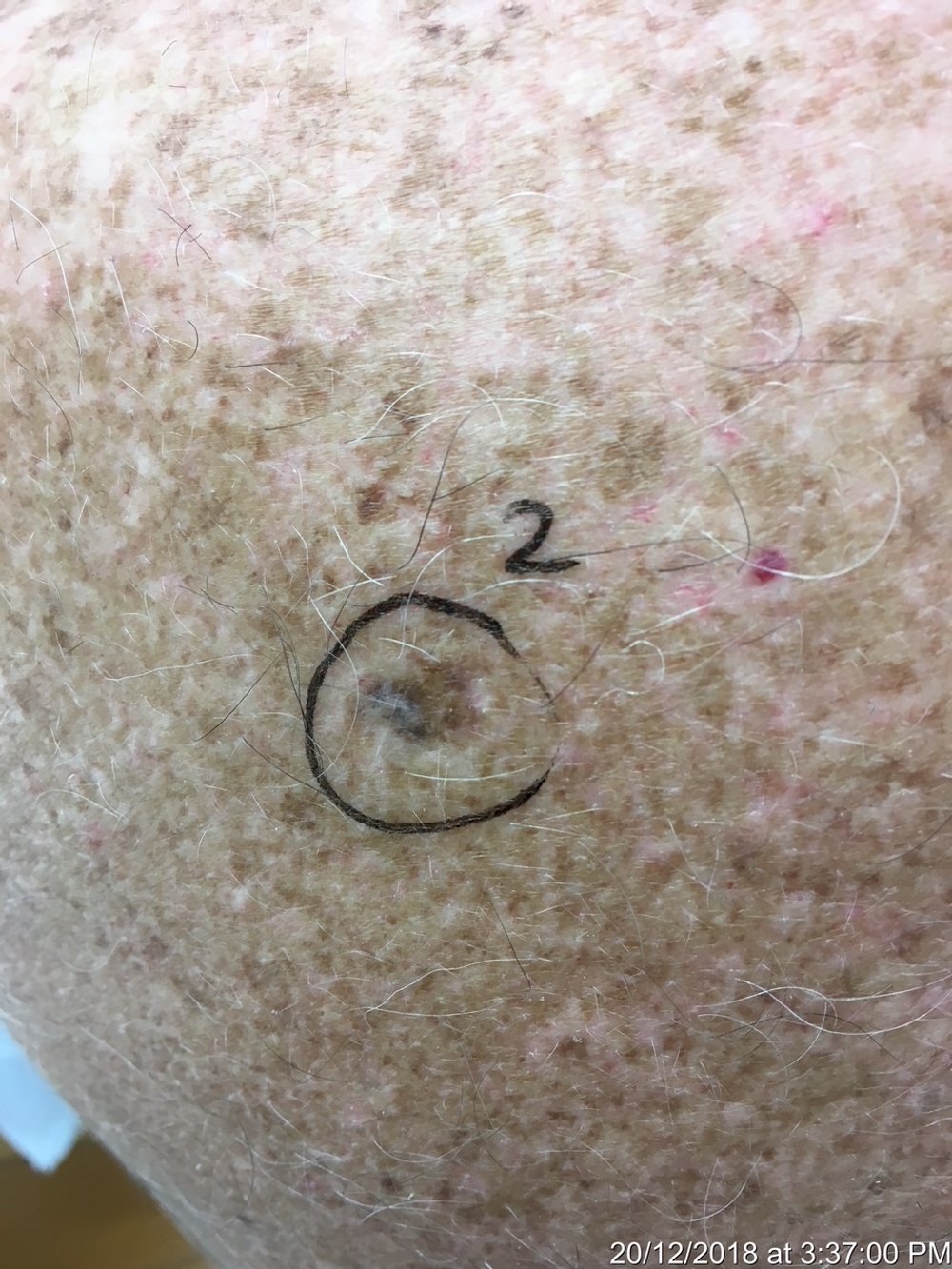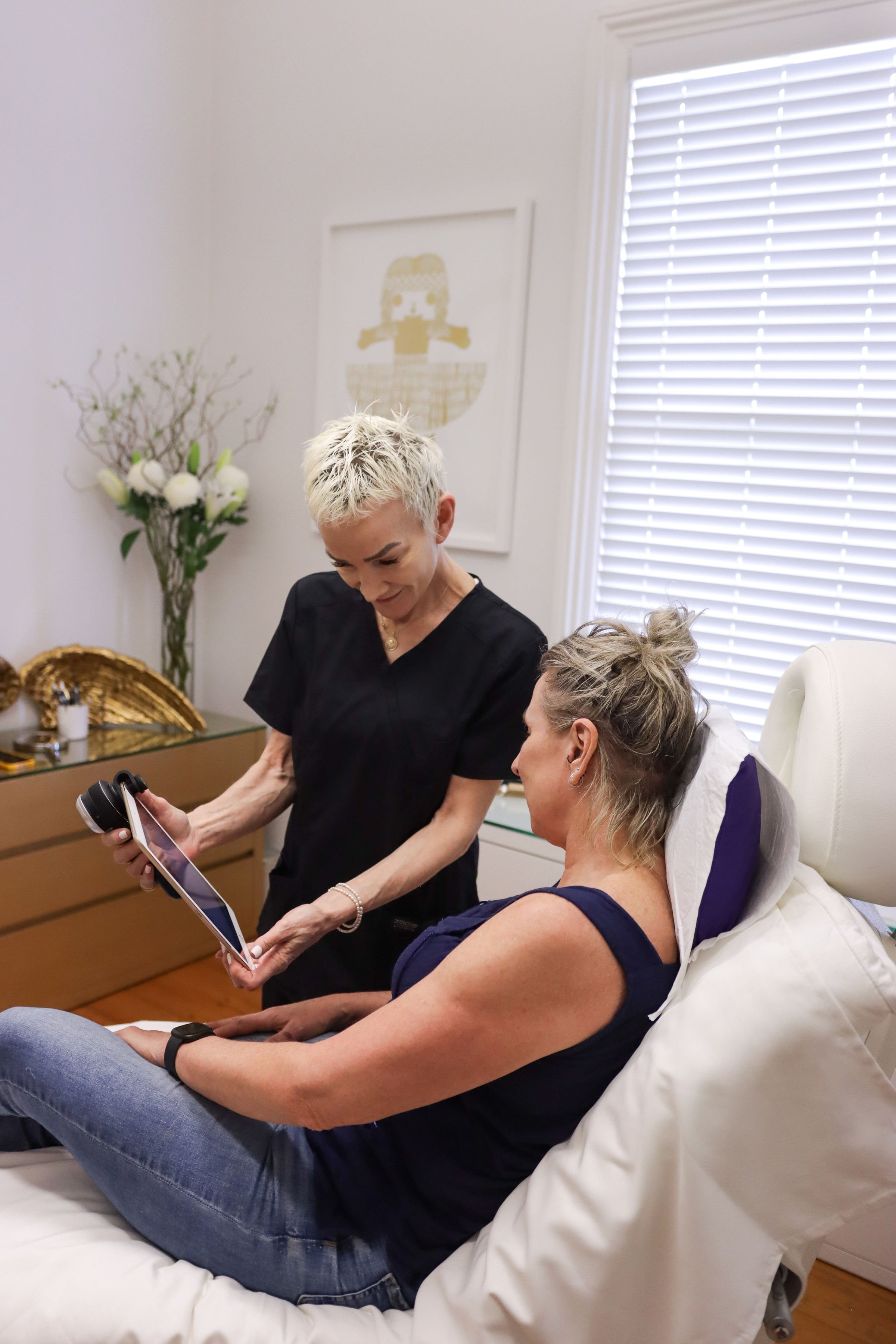
Suspicious Skin Lesions
Early detection is key for suspicious skin lesions
Skin cancer is the most common form of cancer worldwide, and early detection plays a crucial role in successful treatment. Regular skin cancer examinations are essential, particularly for individuals with a higher risk of developing skin cancer or those with a history of excessive sun exposure. These examinations, which always Include a photographic record, can help identify suspicious skin lesions and monitor any changes over time.
Everyone should regularly check their own skin. The Skin Cancer College of Australasia, of which I am a full member, encourages patients to SCAN their skin and look for a spot or mole that is:
S – Sore: Scaly, itching, bleeding, tender and doesn’t heal within 6 weeks.
C – Changing: Changing in size, shape, colour or texture
A – Abnormal: Looks different, feels different, or stands out when compared to your other spots and moles
N – New: Has appeared on your skin recently. Any new moles or spots should be checked, especially if you are over 40.
It's your doctor's job to diagnose skin cancer, but you will know better than anyone else If something on your skin Is Sore, Changing, Abnormal or New.
The importance of regular skin cancer examinations
Regular skin cancer examinations are essential because the most effective management for skin cancer Is early detection and treatment.
Early detection: Regular skin examinations allow for the early detection of skin cancer. By identifying suspicious lesions at an early stage, treatment can be initiated promptly, increasing the chances of successful outcomes.
Monitoring changes: A photographic record of the skin can help track any changes in existing moles or lesions over time. Comparing images taken during each examination allows healthcare professionals to identify subtle changes that may indicate the development of skin cancer.
Peace of mind: Regular skin cancer examinations, particularly for individuals at higher risk, provide peace of mind by ensuring that any suspicious lesions are detected and addressed promptly.
Education and awareness: Skin cancer examinations provide an opportunity for individuals to learn about the importance of sun protection, early detection, and self-examinations. Skin cancer doctors can educate patients on risk factors, sun-safe behaviours, and how to perform regular self-checks.
Tailored management: A photographic record of suspicious skin lesions helps healthcare professionals develop a tailored management plan for each individual. They can determine the appropriate frequency of follow-up examinations, biopsy procedures if necessary, and personalized recommendations for sun protection.
What else should I know?
If you notice any suspicious skin lesions or changes in your skin, it's important to consult a skin cancer doctor. They can evaluate the lesion, perform a biopsy if needed, and provide appropriate treatment or further monitoring.
Remember, prevention and early detection are key in the fight against skin cancer. Practice sun-safe behaviours, such as wearing sunscreen, seeking shade, and wearing protective clothing, and schedule regular skin cancer examinations to ensure the health and well-being of your skin.



